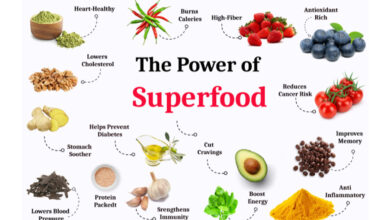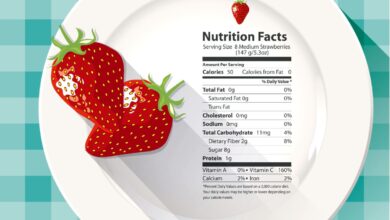
Unlocking Optimal Performance: The Interplay Between Nutrition and Fitness
Introduction
Achieving optimal performance in fitness and athletic endeavors involves a multifaceted approach, with nutrition playing a crucial role alongside physical training. The interplay between nutrition and fitness is intricate and dynamic, impacting energy levels, recovery, muscle growth, and overall health. In this article, we’ll delve into five key aspects of this relationship, exploring how proper nutrition can enhance fitness outcomes and maximize performance.
Understanding Macronutrients
Macronutrients—carbohydrates, proteins, and fats—are the cornerstone of any nutrition plan aimed at supporting fitness goals. Carbohydrates serve as the primary source of energy for high-intensity activities, while proteins are essential for muscle repair and growth. Healthy fats play a role in hormone regulation and provide sustained energy. Balancing these macronutrients according to individual needs and activity levels is crucial for optimizing performance. For example, endurance athletes may require a higher carbohydrate intake, while strength trainers may benefit from increased protein consumption to support muscle development.
Pre-Workout Nutrition Strategies
The foods consumed before a workout can significantly impact performance and energy levels. Optimal pre-workout nutrition aims to provide a source of readily available energy while minimizing digestive discomfort. Complex carbohydrates, such as whole grains and fruits, are ideal choices, offering sustained energy without causing rapid spikes in blood sugar. Including a moderate amount of protein can help support muscle maintenance and repair during exercise. Additionally, staying hydrated by drinking water or electrolyte-rich beverages is essential for preventing dehydration and maintaining performance levels.
Post-Workout Recovery
Effective recovery nutrition is vital for optimizing the benefits of exercise and minimizing fatigue and muscle soreness. Following a workout, the body is primed to absorb nutrients and initiate the repair and rebuilding process. Consuming a combination of carbohydrates and protein within the post-exercise window—typically within 30 to 60 minutes—can enhance recovery and muscle glycogen replenishment. Foods such as lean protein sources, fruits, and vegetables provide essential nutrients and promote muscle repair and growth. Including sources of antioxidants, such as berries or leafy greens, can also help reduce inflammation and support overall recovery.
Hydration and Performance
Hydration plays a critical role in maintaining performance and preventing dehydration-related issues such as fatigue, cramping, and decreased cognitive function. Adequate fluid intake before, during, and after exercise is essential for sustaining energy levels and supporting physiological processes. Water is the primary beverage for hydration, but electrolyte-rich drinks may be beneficial during prolonged or intense workouts, especially in hot environments. Monitoring urine color and body weight changes can help gauge hydration status, with pale yellow urine and minimal weight loss indicating adequate fluid intake.
Individualization and Long-Term Success
While general principles of nutrition and fitness apply to most individuals, it’s essential to recognize that individual needs and preferences vary. Experimenting with different macronutrient ratios, timing strategies, and hydration practices can help individuals find what works best for them. Consulting with a registered dietitian or sports nutritionist can provide personalized guidance and support long-term success. By prioritizing nutrient-dense foods, staying hydrated, and fine-tuning nutrition strategies to align with fitness goals, individuals can unlock their full potential and achieve optimal performance.
Conclusion
Nutrition and fitness are intertwined components of achieving optimal performance in physical activity and sports. By understanding the interplay between these factors and implementing evidence-based nutrition strategies, individuals can enhance energy levels, support muscle growth and repair, and improve overall health and well-being. Whether aiming to excel in athletic competition or simply improve fitness levels, prioritizing proper nutrition alongside physical training is essential for unlocking peak performance and realizing one’s full potential.
- Baby names starting with A
- Baby names starting with B
- Baby names starting with C
- Baby names starting with D
- Baby names starting with E
- Baby names starting with F
- Baby names starting with G
- Baby names starting with H
- Baby names starting with I
- Baby names starting with J
- Baby names starting with K
- Baby names starting with L
- Baby names starting with M
- Baby names starting with N
- Baby names starting with O
- Baby names starting with P
- Baby names starting with Q
- Baby names starting with R
- Baby names starting with S
- Baby names starting with T
- Baby names starting with U
- Baby names starting with V
- Baby names starting with W
- Baby names starting with X
- Baby names starting with Y
- Baby names starting with Z















